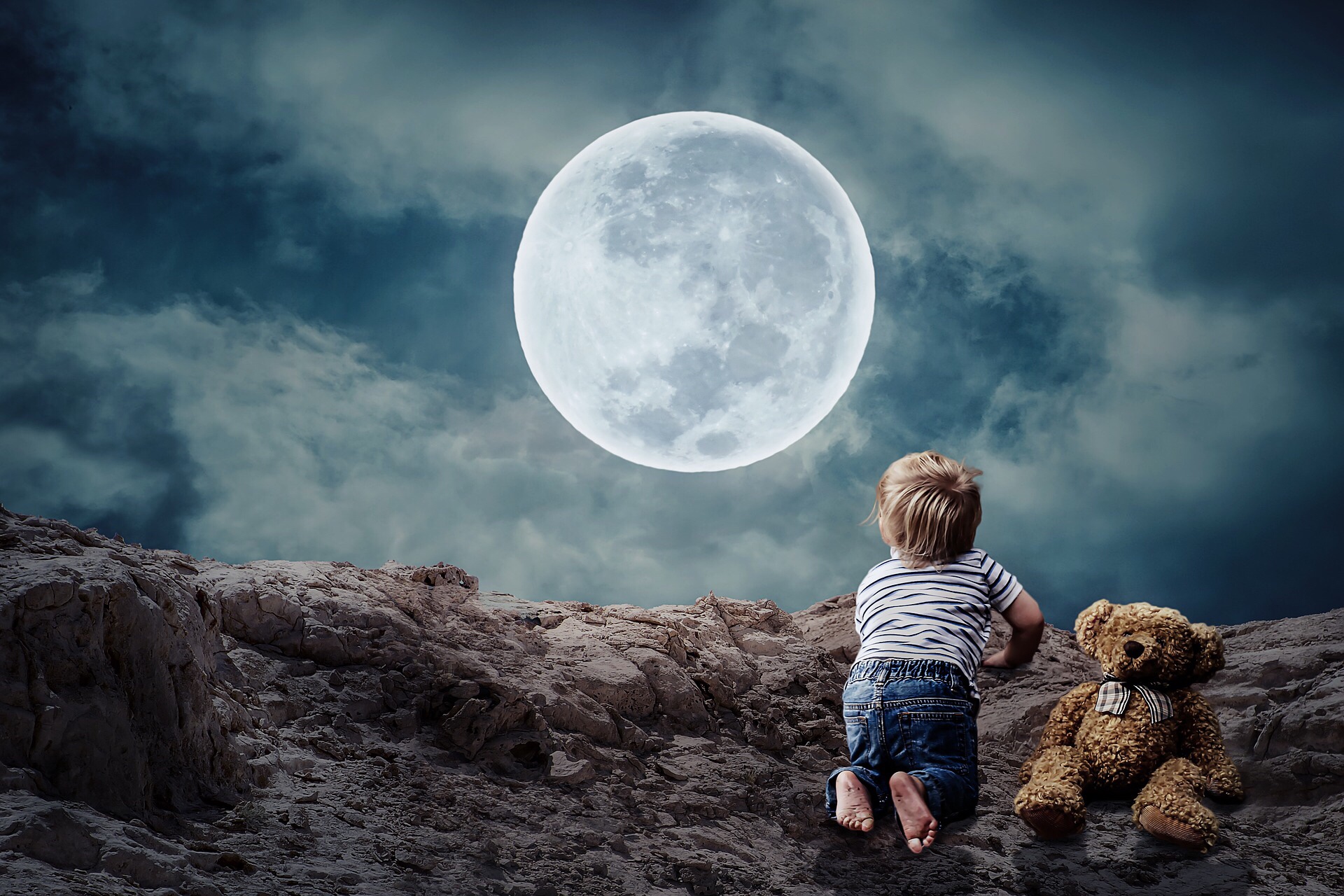JOSEPH LITTAUA WRITES – Quarantine has given me the opportunity to analyze how internet culture has changed this year. From the Zoomers’ (Gen Z’s unofficial nickname) rapid and constantly changing sense of humor and memes to new trends from the most seemingly random of songs, some social media trends come and go. The one trend that will always come back is nostalgia, especially now, in times of distress or loneliness due to the quarantine. On TikTok and Twitter, there has been a major influx of videos or tweets about what Gen Z and the latter half of the Millenial Generation find nostalgic. In particular, people are commenting about what they did when in the past they found themselves feeling over-stressed and burnt out.
For these reasons, I’d like to serve you a plate of nostalgia with a dash of dialogue with the moon.
But first, some generational clarifications. People born between 1990-2005 are most likely to feel nostalgic about things they remember from childhood that I’ll reference here, whether because they know them from their own time growing up or from that of their siblings. For example, there has been a recent upsurge in content related to the Power Rangers series, with which those born during the first half of the Millenial Generation (1981-96) probably aren’t as familiar. The same goes for the latter half of Gen Z (1997-2012) when noting the cultural prevalence of shows like Avatar: The Last Airbender (the animated show, not the movie). That wouldn’t mean much to children born after 2005. And so, considering that the majority of content on TikTok comes from creators between the ages of 17-35, I’ll focus on that generation’s nostalgia.
One intriguing thing about nostalgia is what people consider to be a “fulfilling childhood.” Most 17-35-year-olds from the US and Western Europe had fun with Asian-inspired creations. America adapted Japan’s Super Sentai Series into Power Rangers (starting with the Koryu Sentai Zyurangers) and Avatar: The Last Airbender, both inspired by Asian cinema (mostly anime, the movie ‘Crouching Tiger Hidden Dragon,’ and other wuxia films) as well as other aspects of Asian culture (such as traditional Hanfu or Ao Dai outfits and references to Buddhism and Daoism.) Shows like The Legend of Korra, Avatar’s sequel, and The Boondocks having full seasons animated in South Korea by Studio Mir. These are only a small portion of the Asian influence on Western adolescence (not to mention major Asian influences on the internet such as music, YouTube personalities).
Another aspect of a “fulfilling childhood” is being able to take action when feeling down—like dancing in the rain, lying down on the ground, face-up, and just meditating, or the very simple concept of having a conversation with an imaginary best friend or inanimate object. These three activities were commonly talked about on TikTok and Twitter—but most of all, conversing with a friend or imaginary object. You see, the desire for those kinds of conversations usually means the person, or kid, is trying to have a moment of self-reflection, but a one-sided conversation is always unfun. So, you imagine the other person. This kind of self-reflection differs from traditional forms of meditation.
By way of example, here is an excerpt of a conversation I had with the moon recently, since quarantine has made it hard to hear a clear voice by way of traditional forms of meditation.
Me: You know, I find it interesting to try and understand what different people consider good forms of parenting.
Moon: So why is that? Is it just because parental styles aren’t universal? Or because there seems to be some consensus on what is considered good parenting?
Me: Hmmm, I think part of it is that first point you gave. Some parents try to be more like friends with their children, while others try to keep things like a hierarchy. The second point, though, is also true, since I’ve seen how parents choose to correct a child’s wrongs with some form of discipline, whether through chores or other things. But that also brings into question: Would I would be a good parent?
Moon: I think you would be.
Me: That’s great, but you’re the moon. Where are your children?
Moon: Fair enough. Still, though, I’ve seen your priorities and I feel confident in saying you’d likely be a great parent.
Me: Alright, sure, I’ll take your word for it. Say, would you mind me writing about this some time?
Moon: Ehh, why not?
As you can see, a conversation with the moon or any other subject can enhance self-reflection, and by combining said activities with differing media which has influenced many Millenials and Zoomers, one can easily understand how nostalgia would come to the forefront of social media at the current time; and if quarantine continues far into the future, perhaps we should all try watching some of the shows and activities mentioned here. You might just find the tools to access a new pastime.

